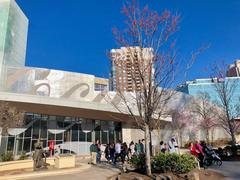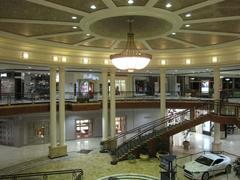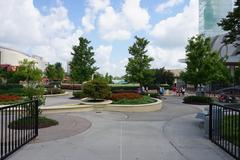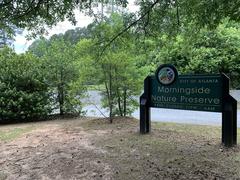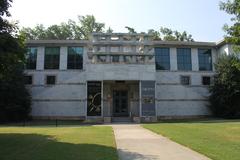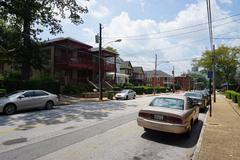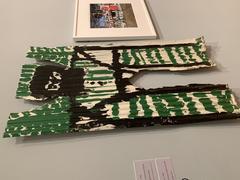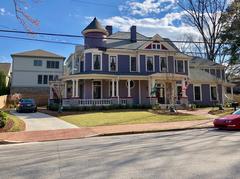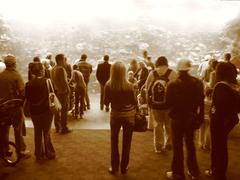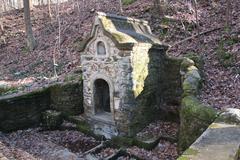Visiting Hours and Tickets for Historic Fourth Ward Park, Atlanta
Publication Date: 18/07/2024
Introduction to Historic Fourth Ward Park
Historic Fourth Ward Park, a vibrant green oasis in the heart of Atlanta, is a shining example of urban renewal and community revitalization. This park, part of the ambitious Atlanta BeltLine project, seamlessly integrates the city’s industrial past with modern recreational spaces. Initially inhabited by Creek and Cherokee Native American tribes, the area transformed into an industrial hub in the late 1800s, driven by the arrival of the railroad. By the mid-1900s, however, the Fourth Ward experienced significant decline, plagued by poverty and neglect. The vision for renewal began to take shape in the late 1900s, culminating in the park’s official opening in 2011. Today, Historic Fourth Ward Park offers a plethora of attractions, from scenic trails and historical remnants to community events and recreational activities, making it a must-visit destination for both locals and tourists. (Historic Fourth Ward Park)
Contents Overview
- Discover the History and Visitor Guide to Historic Fourth Ward Park in Atlanta
- Early Days and Industrial Rise (1800s - Early 1900s)
- Decline and Transformation (Mid-1900s - 2000s)
- Birth of a Park (2010 - Present)
- Visitor Information
- Exploring the Park
- Nearby Attractions
- Significance and Impact
- Frequently Asked Questions (FAQ)
- Essential Visitor Tips for Historic Fourth Ward Park - Hours, Tickets, and Must-See Attractions in Atlanta
- Best Time to Visit
- Getting There and Around
- Exploring the Park
- Photography Tips
- Accessibility
- Safety and Etiquette
- Summary and Final Thoughts
Discover the History and Visitor Guide to Historic Fourth Ward Park in Atlanta
Historic Fourth Ward Park stands as a testament to Atlanta’s fascinating evolution, transforming from an industrial hub to a vibrant green space in the heart of the city. Understanding its history is key to appreciating the park’s significance today.
Early Days and Industrial Rise (1800s - Early 1900s)
- Early Settlement (Early 1800s): The area that now encompasses Historic Fourth Ward Park was initially inhabited by the Creek and Cherokee Native American tribes. Following their forced removal, European settlers arrived, marking the beginning of Atlanta’s growth.
- Industrial Development (Late 1800s - Early 1900s): The arrival of the railroad in the mid-1800s transformed Atlanta into a transportation hub, spurring industrial development. The Fourth Ward, strategically located near the rail lines, became a center for manufacturing and industry. Factories, warehouses, and worker housing dominated the landscape, shaping the neighborhood’s character.
Decline and Transformation (Mid-1900s - 2000s)
- Post-War Decline (Mid-1900s): Like many American cities, Atlanta experienced suburbanization after World War II. Industries decentralized, leaving behind vacant factories and warehouses in the Fourth Ward. The once-thriving industrial area fell into decline, facing challenges of poverty, crime, and neglect.
- Vision for Renewal (Late 1900s): Despite the challenges, community leaders and residents recognized the potential of the Fourth Ward. A vision emerged to revitalize the area, transforming it into a desirable neighborhood with green spaces and a connection to its industrial past.
- Park Development (2000s): The idea for Historic Fourth Ward Park began to take shape in the early 2000s. The Atlanta BeltLine project, an ambitious urban redevelopment initiative, played a crucial role in securing funding and support for the park’s creation.
Birth of a Park (2010 - Present)
- Opening and Expansion (2010 - Present): Historic Fourth Ward Park officially opened to the public in 2011. The park’s design incorporated remnants of the area’s industrial past, preserving historic structures like the brick chimney and integrating them into the landscape. Over the years, the park has undergone expansions, adding new amenities and features.
Visitor Information
- Visiting Hours: Historic Fourth Ward Park is open daily from 6 AM to 11 PM, offering ample time for visitors to explore and enjoy the many features of the park.
- Tickets and Fees: Entry to Historic Fourth Ward Park is free of charge, making it an accessible destination for everyone.
- Accessibility: The park is designed to be accessible to all visitors, with paved paths and ramps ensuring easy navigation for those with mobility challenges.
Exploring the Park
- Special Events: The park hosts various special events throughout the year, ranging from music festivals to community gatherings. Check the park’s official website for a calendar of upcoming events.
- Guided Tours: For those interested in a deeper understanding of the park’s history and features, guided tours are available upon request.
- Photographic Spots: The park offers numerous picturesque spots, including the historic brick chimney and serene pond, providing perfect backdrops for photography enthusiasts.
Nearby Attractions
- Atlanta BeltLine: The park is part of the larger Atlanta BeltLine project, a network of parks and trails that encircles the city. It’s a great starting point for exploring other parts of the BeltLine.
- Ponce City Market: Located nearby, Ponce City Market offers a variety of dining, shopping, and entertainment options, making it a perfect complement to a visit to Historic Fourth Ward Park.
- Martin Luther King Jr. National Historical Park: A short distance away, this site offers a deep dive into the history and legacy of one of America’s most influential civil rights leaders. (Martin Luther King Jr. National Historical Park)
Significance and Impact
- Urban Renewal and Revitalization: Historic Fourth Ward Park stands as a powerful symbol of urban renewal and revitalization. Its creation has played a pivotal role in transforming the Fourth Ward into a desirable neighborhood, attracting residents, businesses, and visitors.
- Community Gathering Place: The park serves as a vital community gathering place, offering a space for recreation, relaxation, and social interaction. Its playgrounds, open lawns, and event spaces foster a sense of community and belonging.
- Economic Impact: The park’s presence has had a significant economic impact on the surrounding area. It has attracted new businesses, increased property values, and contributed to the growth of tourism in the neighborhood.
- Environmental Sustainability: Historic Fourth Ward Park incorporates sustainable design elements, such as a rainwater reclamation system and permeable paving, demonstrating a commitment to environmental responsibility.
Frequently Asked Questions (FAQ)
- What are the visiting hours of Historic Fourth Ward Park? The park is open daily from 6 AM to 11 PM.
- Is there an entrance fee for Historic Fourth Ward Park? No, entry to the park is free of charge.
- Are there guided tours available? Yes, guided tours can be arranged upon request.
- What are some nearby attractions? Nearby attractions include the Atlanta BeltLine, Ponce City Market, and the Martin Luther King Jr. National Historical Park.
Preserving the Past, Embracing the Future
Historic Fourth Ward Park represents a successful blend of preserving the past while embracing the future. By incorporating remnants of its industrial heritage into a modern green space, the park tells the story of Atlanta’s evolution and serves as a vibrant destination for residents and visitors alike.
Visit and Stay Up to Date
For more information, visit the official Historic Fourth Ward Park website or follow them on social media. Download the Audiala mobile app to stay up to date with events and other attractions in Atlanta.
Essential Visitor Tips for Historic Fourth Ward Park - Hours, Tickets, and Must-See Attractions in Atlanta
Planning a visit to Atlanta’s Historic Fourth Ward Park? This guide provides essential tips on visiting hours, ticket information, and must-see attractions to ensure you have a memorable experience. Nestled in the heart of Atlanta, this park offers a unique blend of natural beauty and urban charm, making it a must-visit for both locals and tourists.
Best Time to Visit
- Spring and Fall: These shoulder seasons offer pleasant weather, vibrant foliage (especially in fall), and fewer crowds.
- Weekdays: For a more tranquil experience, visit on a weekday. Weekends tend to be livelier, especially during events.
Getting There and Around
- Public Transportation: MARTA’s Civic Center station is a short walk from the park, making it easily accessible by public transport.
- Bike-Friendly: Atlanta’s BeltLine Eastside Trail runs through the park, making it a great destination for cyclists. Bike racks are available within the park.
- Parking: Limited paid parking is available in the park’s lot. Arrive early, especially on weekends, to secure a spot.
Exploring the Park
- Take a Walk or Jog: The park’s paved trails are perfect for a leisurely stroll or a refreshing run. Enjoy the scenic views of the Atlanta skyline.
- Pack a Picnic: The park offers ample green space perfect for a picnic lunch. Several picnic tables are available on a first-come, first-served basis.
- Attend an Event: The park hosts various events throughout the year, from concerts and festivals to fitness classes and markets. Check the park’s website or local event listings for upcoming events.
- Bring Your Furry Friend: The park welcomes leashed dogs and features a dedicated dog park for off-leash play.
Photography Tips
- Golden Hour Magic: Capture stunning photos during the golden hours (shortly after sunrise and before sunset) when the light is soft and warm.
- Cityscape Views: The park offers picturesque views of the Atlanta skyline, especially from the bridge overlooking the park.
- Water Features: The park’s fountain and reflecting pool provide unique photographic opportunities. Experiment with reflections and water in motion.
- Seasonal Beauty: Capture the vibrant colors of spring blooms, the lush greenery of summer, or the warm hues of fall foliage.
Accessibility
- Paved Trails: The park’s trails are paved and mostly flat, making them accessible to visitors with mobility impairments.
- Restrooms: Accessible restrooms are available within the park.
- Benches: Numerous benches are located throughout the park, providing resting spots for visitors.
Safety and Etiquette
- Stay Hydrated: Carry a water bottle and stay hydrated, especially during warmer months. Water fountains are available for refills.
- Sun Protection: Wear sunscreen, a hat, and sunglasses, especially during peak sun hours.
- Respect Wildlife: Observe wildlife from a distance and avoid feeding or disturbing them.
- Clean Up After Yourself: Dispose of trash properly in designated bins. Help keep the park clean and enjoyable for everyone.
Nearby Attractions
- Martin Luther King Jr. National Historical Park: Explore the life and legacy of the iconic civil rights leader at this nearby historical park.
- World of Coca-Cola: Discover the history and cultural impact of this iconic beverage at the World of Coca-Cola museum.
- Georgia Aquarium: Immerse yourself in the underwater world at the Georgia Aquarium, home to thousands of marine animals.
Planning Your Visit
- Check the Forecast: Atlanta’s weather can be unpredictable. Check the forecast before your visit and dress accordingly.
- Allow Ample Time: The park offers much to see and do. Allow ample time to explore at your own pace.
- Consider a Guided Tour: For a deeper understanding of the park’s history and significance, consider joining a guided tour.
Visitor Information
- Hours: The park is open daily from 6 AM to 11 PM.
- Tickets: Entry to the park is free, but some events may require tickets.
History and Cultural Significance
Historic Fourth Ward Park is a testament to Atlanta’s commitment to urban renewal and green space development. Once a neglected area, it has been transformed into a vibrant community hub, reflecting the city’s rich history and dynamic future.
FAQ
Q: What are the Historic Fourth Ward Park visiting hours? A: The park is open daily from 6 AM to 11 PM.
Q: Is there an entry fee for Historic Fourth Ward Park? A: No, entry to the park is free, though some events may require tickets.
Q: Is Historic Fourth Ward Park dog-friendly? A: Yes, the park welcomes leashed dogs and has a dedicated off-leash dog park.
Q: How can I get to Historic Fourth Ward Park using public transportation? A: The park is accessible via MARTA’s Civic Center station, a short walk away.
By following these tips, you can ensure a safe, enjoyable, and memorable visit to Historic Fourth Ward Park, a true gem in the heart of Atlanta. Stay up-to-date with the latest events and information by visiting the park’s official website or following them on social media.
Summary and Final Thoughts
Historic Fourth Ward Park stands as a testament to Atlanta’s resilience and dedication to urban renewal. Its rich history, from the early days of Native American settlement to its industrial boom and eventual decline, is meticulously preserved and celebrated within the park’s design. The park not only provides a peaceful retreat amidst the bustling city but also serves as a vital community hub, fostering social interaction and economic growth. Visitors can enjoy a wide range of activities, from relaxing in the park’s open lawns to exploring the nearby Ponce City Market and Martin Luther King Jr. National Historical Park. By incorporating sustainable design elements and offering accessible amenities, Historic Fourth Ward Park exemplifies a harmonious blend of past and future, making it a cherished landmark in Atlanta. For more information and to stay updated on events, visit the official website and follow the park on social media.
Reliable Sources and Further Reading
- Discover the History and Visitor Guide to Historic Fourth Ward Park in Atlanta, 2024, Historic Fourth Ward Park
- Explore Historic Fourth Ward Park - Visiting Hours, Tickets, and Top Attractions in Atlanta, 2024, Atlanta BeltLine
- Essential Visitor Tips for Historic Fourth Ward Park - Hours, Tickets, and Must-See Attractions in Atlanta, 2024, Historic Fourth Ward Park
